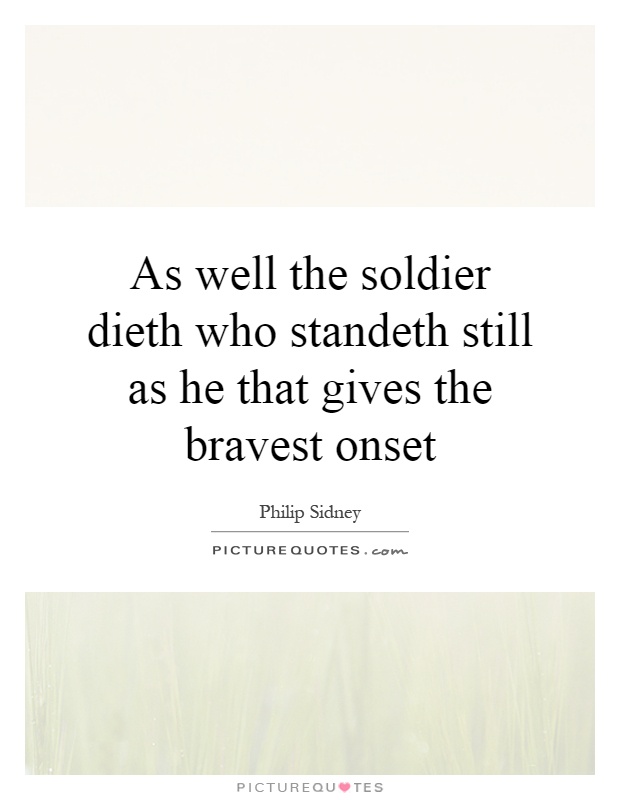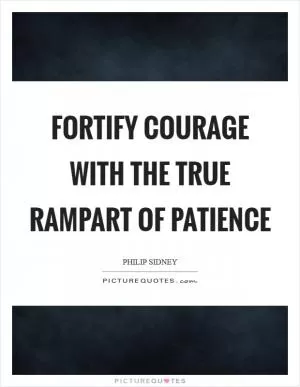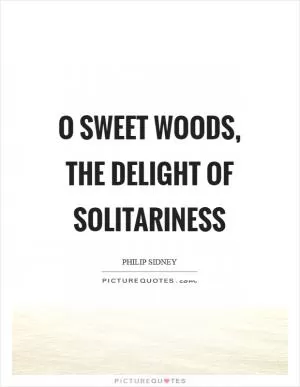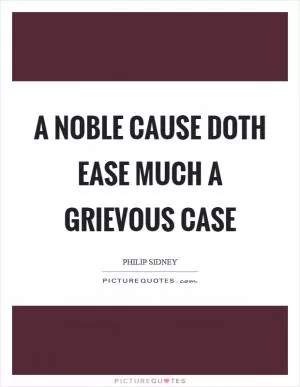As well the soldier dieth who standeth still as he that gives the bravest onset

As well the soldier dieth who standeth still as he that gives the bravest onset
The quote "As well the soldier dieth who standeth still as he that gives the bravest onset" is a powerful statement made by the renowned poet and soldier, Sir Philip Sidney. This quote encapsulates the idea that in war, death is inevitable regardless of whether one is actively engaging in battle or remaining on the sidelines. It highlights the harsh reality of war and the fact that all soldiers, regardless of their actions, are at risk of losing their lives.Sir Philip Sidney was a prominent figure in the Elizabethan era, known for his poetry, prose, and military service. He was a man of great courage and honor, and his words often reflected his deep understanding of the human experience. In this particular quote, Sidney is emphasizing the idea that in war, there is no safe haven. Even those who choose not to engage in battle are still at risk of death.
This quote also speaks to the idea of bravery and sacrifice. Sidney is suggesting that it takes just as much courage to stand still in the face of danger as it does to charge into battle. Both actions require a willingness to face death head-on and a commitment to one's cause. In this way, Sidney is highlighting the inherent risks and uncertainties of war, as well as the importance of bravery and selflessness in the face of adversity.
Furthermore, this quote can be interpreted as a commentary on the futility of war. Sidney may be suggesting that regardless of one's actions or intentions, death is an inevitable outcome of conflict. By emphasizing the equal risk faced by all soldiers, Sidney is underscoring the tragic and senseless nature of war.
Overall, the quote "As well the soldier dieth who standeth still as he that gives the bravest onset" is a poignant reminder of the harsh realities of war and the sacrifices made by those who choose to serve. Sir Philip Sidney's words continue to resonate today, serving as a powerful testament to the enduring impact of his poetry and philosophy.












 Friendship Quotes
Friendship Quotes Love Quotes
Love Quotes Life Quotes
Life Quotes Funny Quotes
Funny Quotes Motivational Quotes
Motivational Quotes Inspirational Quotes
Inspirational Quotes